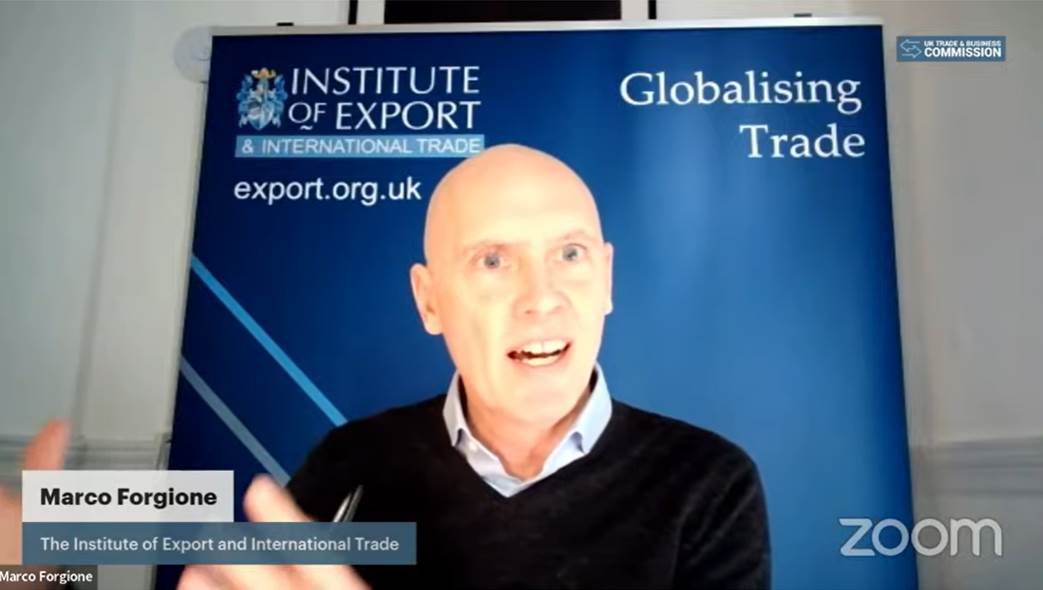
At the end of last week’s evidence session for the UK Trade and Business Commission looking at the government’s framework for negotiating future trade deals, chaired by Hilary Benn MP, witnesses were asked for three wishes from future trade policy.
Here’s a summary of what they asked for.
Get the fundamentals right
Clair Gammage, of the University of Essex Law School, wanted the government to go back to basics.
“The UK needs to decide what its trade policy actually is. What values does the UK want to embed or have as part of its trade strategy?
“Second, we need deeper exploration of how we make the linkages between the external trade policy and the internal industrial policy. How do they connect, how do they relate to one another and how do they feed into one another?
“My last plea to government would be not to abandon a rights-based approach to trade policy. It would be good for the government to consider how rights could be promoted through the internal and external dimensions of trade policy.”
Focus on productivity
Professor Michael Gasiorek from the UK Trade Policy Observatory, University of Sussex, agreed that the UK needs to clearly articulate a trade strategy and link it to domestic industrial strategy.
“One of the big challenges facing the UK economy is a lack of productivity and we need a trade strategy that helps to address that. We need a more focused policy on specific areas and sectors. We’re not going to become a major battery or semiconductor chip producer. We need to think about policies that support niche specialisation.
“Increasingly the barriers to trade are not about tariffs but regulatory barriers. The government needs to think about the key regulatory barriers in the sectors it is interested in – whether that’s manufacturing or services – and think about how to use free trade agreements to ease those trade barriers.
“The UK needs to think hard about its international and trade policy towards climate change and how it can support a transition to a low-carbon economy.
“And for all of this we need certainty. We don’t need instability. Instability impacts negatively on investment. All this constant change in policy, for example with the Retained EU Law Bill, is leading to uncertainty, which is not good for UK trade and investment.”
Don’t forget human rights
Mustafa Qadri of Equidem, while recognising these things are complex, said free trade agreements (FTAs) should contain enforceable human rights protections.
“They must be based on independent human rights and environmental risk assessments and ongoing due diligence mechanisms. We have the UN guiding principles on business and human rights standards that businesses are already applying, so we’re not talking about reinventing things.
“And finally [we should be] setting up enforcement mechanisms on labour rights, human rights and environmental issues in all future UK trade deals. These trade deals are not a panacea, even if they integrate these human and labour rights into them, but they are an opening point and it’s an ongoing matter to be monitoring respect for that. And there are benefits from respecting labour rights and human rights even from a trade perspective.”
Keep it practical
Sally Jones of EY had a simple request from government.
“I’d offer a plea to focus on the practical. The hard technical grind of implementation shouldn’t be overlooked.
“I’d issue a plea to stop the EU Retained Law Bill and certainly its 31 December 2023 deadline, because the risk of disruption to business from unintended consequences is vast.
“Thirdly to publish the Carbon Border Adjustment Mechanism (CBAM) and semiconductor strategies, which are two areas of policy that are critically important to British business.”
Make it joined up
Dr Elitsa Garnizova from LSE Consulting’s Trade Policy Hub focused on linkages between trade policy and other policy areas, notably national security and economic cooperation more broadly, but also the climate transformation.
“We need an inclusive trade policy in terms of women-centred, but also diversity-centred in terms of making sure that we cover all of those rights that we find important.
“Finally, I would say that even though it is mostly oriented towards FTAs, let’s not forget that we can still try to bring some impetus on the most lateral level and trying to make sure that the things we do in our unilateral and bilateral engagement doesn’t in some way hurt that.”
Think and plan for the long term
Marco Forgione, director general of the Institute of Export and International Trade (IOE&IT) concluded by saying that the government needs to have a long-term view of what its approach to trade is going to be.
“That includes imports, exports and our global role. We need to fully leverage our soft power but show commitment as well.
“There is a significant issue around UK skills and I’m talking not just about productivity skills, but about business leaders seeing international trade as just part of doing business rather than a challenge or difficulty that they will get to. We need to look at how we are developing the next generation of business leaders who see themselves as having a role to play internationally.
“And finally, a plea, with regards to any policy that’s being considered by the UK government that impacts trade, is that there is a full and comprehensive engagement on both a regional, devolved nations and business and civil society level to ensure that what is being proposed is going to have the impact that we hope and expect.
“This would help us avoid the lack of understanding of what the rules and regulations really are.”



